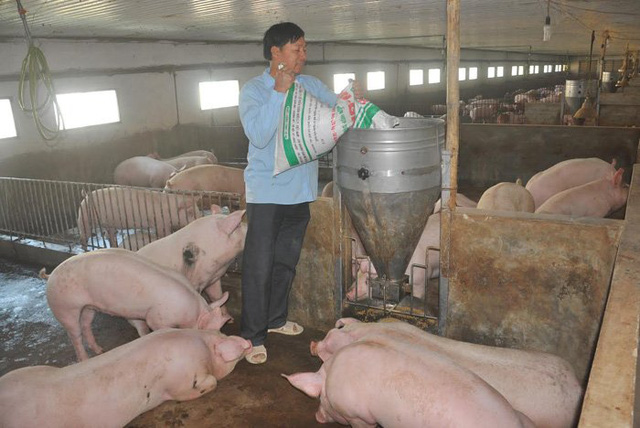Michelin leads the smart mobility revolution with data and AI
Michelin is undergoing a strong transformation by applying AI and smart analytic, helping lead the smart, safe, and sustainable mobility revolution in the Industry 4.0 era.




Only a small amounts of livestock products are able to be exported as food safety management in Vietnam is still weak.

Pham Van Dong, head of the Department of Animal Health, under the Ministry of Agriculture and Rural Development, said that Vietnam had exported frozen suckling and weaned pigs to Hong Kong and Malaysia. Last year, 11,000 tonnes of pork worth US$100m was exported. In the first five months of 2017, this number was 10,600 tonnes valued at US$46m.
A variety of salted and canned eggs have also been exported to Hong Kong, Singapore and Japan. However, Vietnam hasn't been able to export poultry.
Hoang Thanh Van, director of the Department of Livestock Production, said Vietnam had huge potential to provide mass exports but many countries expressed worries about potential diseases and epidemics as Vietnam has failed to create disease-free areas for livestock.
Nguyen Duc Hoang, chairman of Thang Loi Company, said suckling pig was considered a Vietnamese speciality. Many firms from Singapore, Taiwan and South Koran have visited Vietnam to explore opportunities but Vietnam had only been able to export to two markets. The country has had many difficulties in expanding businesses because of weak management over food safety. Even processing factories have failed to meet required standards.
"Any trade promotion is useless if departments of animal health don't work with each other. We have paid for this shortcoming," he said.
In 2014, after Hoang completed all procedures to export pork without aid from the authorities, the department of health in Singapore denied their documents, citing foot and mouth disease.
Nguyen Thanh Son, Director of the Institute of Animal Husbandry, said exports were vital for the agriculture sector. He said, "We need a comprehensive strategy for exports with clear criteria and government should also support firms in trade promotion. If the strategy is carried out aggressively enough, we may be able to export livestock products in five to ten years."
Whenever there is an oversupply which makes prices fall and causes difficulties to the farmers, the government tries to buy the surplus and help find outlets for them. But Son said they needed long-term plans and requirements in order to prevent farmers from over-stocking and raising animals in unsanitary conditions.
Deputy Minister of Agriculture and Rural Development Vu Van Tam agreed that Vietnam had failed to meet export requirements. Prices were still too high, the competitiveness weak as firms and farmers lack information regarding their markets.
Tam advised firms to invest in cold storage warehouses and modern production lines for processed products. Meanwhile, the government needed detailed planning and policies to control diseases. Tam asked the Department of Animal Health to work with other countries to expand markets, inform local firms and work with local authorities to build disease-free areas.
Hoang Thanh Van, director of the Department of Livestock Production, suggested lowering prices.
Michelin is undergoing a strong transformation by applying AI and smart analytic, helping lead the smart, safe, and sustainable mobility revolution in the Industry 4.0 era.
LG Innotek Vietnam Hai Phong secured a $200 million IFC loan as revenue slows, aiming to expand camera module production while meeting sustainability targets.
For Koen Soenens, Sales and Marketing Director at DEEP C, empathy is a compass that guides major deals, the way a leader builds a team, and the ambition to create a sustainable industrial zone that carries a Vietnamese identity.
Taseco Land has shifted its listing to HOSE and introduced a new upward-pointing arrow logo - a visual statement of its strategy to raise capital, expand its land bank, and strengthen its standing in Vietnam’s real estate sector
Located in the heart of Ho Chi Minh City, SAP Labs Vietnam is the second SAP Labs Network hub in Southeast Asia, following Singapore and is one of 20 countries that have SAP Labs globally.
Solar & Storage Live Vietnam event has been running since 2017 and the 2025 edition will be the biggest yet.